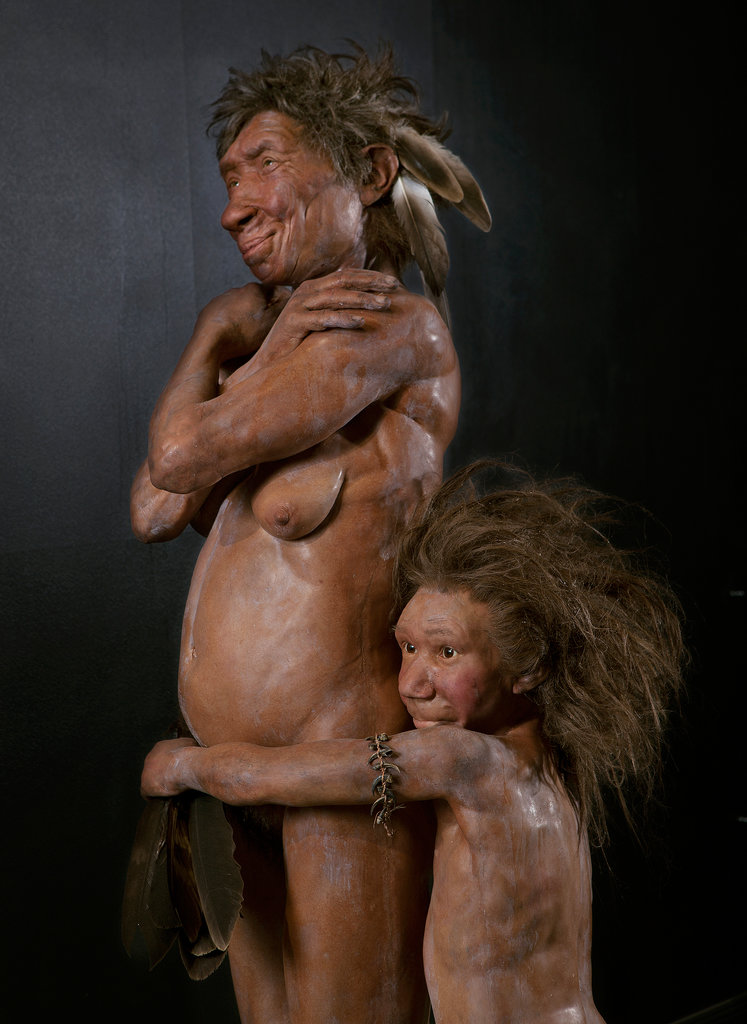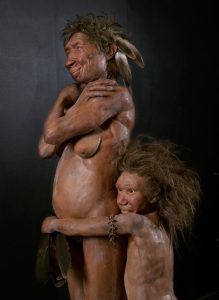The academic journal PLOS recently published a study that suggests that the extinction of human species commonly known as Neanderthals may have been hastened by a blood disorder in children conceived via Neanderthal/Homo Sapiens interbreeding. The abstract reads:
Blood group systems were the first phenotypic markers used in anthropology to decipher the origin of populations, their migratory movements, and their admixture. The recent emergence of new technologies based on the decoding of nucleic acids from an individual’s entire genome has relegated them to their primary application, blood transfusion. Thus, despite the finer mapping of the modern human genome in relation to Neanderthal and Denisova populations, little is known about red cell blood groups in these archaic populations. Here we analyze the available high-quality sequences of three Neanderthals and one Denisovan individuals for 7 blood group systems that are used today in transfusion (ABO including H/Se, Rh (Rhesus), Kell, Duffy, Kidd, MNS, Diego). We show that Neanderthal and Denisova were polymorphic for ABO and shared blood group alleles recurrent in modern Sub-Saharan populations. Furthermore, we found ABO-related alleles currently preventing from viral gut infection and Neanderthal RHD and RHCE alleles nowadays associated with a high risk of hemolytic disease of the fetus and newborn. Such a common blood group pattern across time and space is coherent with a Neanderthal population of low genetic diversity exposed to low reproductive success and with their inevitable demise. Lastly, we connect a Neanderthal RHD allele to two present-day Aboriginal Australian and Papuan, suggesting that a segment of archaic genome was introgressed in this gene in non-Eurasian populations. While contributing to both the origin and late evolutionary history of Neanderthal and Denisova, our results further illustrate that blood group systems are a relevant piece of the puzzle helping to decipher it.
https://journals.plos.org/plosone/article?id=10.1371/journal.pone.0254175.
Thanks to Soror Amy for the tip!


